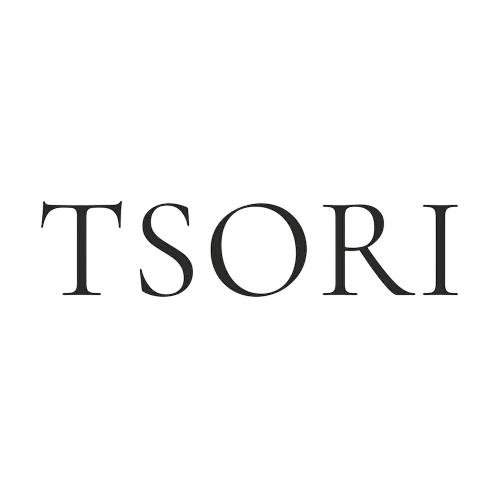
The Difference Between a Routine and a Relationship with Your Skin
Part I: Routines Are Tasks. Relationships Are Conversations.
We’ve been taught to treat our skin like a checklist:
Cleanse. Tone. Exfoliate. Treat. Moisturize. Repeat.
It’s a cycle of doing, applying, correcting. But at TSORI, we believe in something more sacred—something quieter and infinitely more powerful. We believe in having a relationship with your skin, not just a routine.
A routine is what you do to your skin.
A relationship is how you listen to it.
Part II: How I Learned the Difference
I spent years cycling through products—hunting for solutions, treating my face like a canvas to fix instead of a living organ to understand. My daughter’s eczema finally pulled me into a different world: one where healing wasn’t about silencing symptoms, but supporting the body’s wisdom.
That journey led to Balm of Gilead, to small-batch whole plants, to quiet evenings watching a single salve do more than a cabinet full of actives.
That journey led to TSORI.
Part III: What a Routine Looks Like (And Why It Fails Sensitive Skin)
Let’s be honest—most modern skincare routines aren’t designed for your skin.
They’re designed for your shopping cart.
The industry thrives on complexity. It convinces you that glowing skin requires a multi-step matrix of products, ingredients, and protocols—when in truth, all that noise is what’s keeping your skin stuck in a cycle of irritation.
Here’s what a typical “clean beauty” routine looks like:
- Cleanser (often foaming, stripping your natural oils)
- Toner (frequently acidic or astringent, marketed as a "refresh")
- Essence (a trend imported to make you layer more)
- Serum (often packed with isolated actives, unstable combinations)
- Moisturizer (usually 70–90% water, plus emulsifiers + preservatives)
- Eye cream (a diluted version of your moisturizer, sold separately)
- Spot treatment (designed to "dry out" what your body is trying to detox)
- Mask (marketed as self-care, often over-exfoliating)
- Facial oil (layered after all the water has evaporated)
It’s not skincare.
It’s micromanagement in a lab coat.
And for sensitive skin, this routine is a minefield—every layer is another variable. Another preservative. Another emulsifier. Another potential for inflammation masked as innovation.
Graph: Irritation Risk by Number of Products Used

Line graph showing exponential rise in skin irritation risk as product count increases beyond 3–4 steps.
Why does this matter?
Because sensitive skin isn’t just about what you use.
It’s about how much your skin is forced to process, daily.
When you layer product over product, you’re not nourishing your skin—you’re overwhelming its natural ability to repair, regulate, and breathe.
At TSORI, we see through the illusion.
We know that true healing doesn’t come from overwhelming your skin with ten products promising ten different results. It comes from peeling everything back—until all that remains is what your skin truly needs: breath, balance, and botanical intelligence.
The less you do, the more your skin can do what it was created to.
Let go of the routine.
Reclaim the relationship.
Part IV: How a Relationship Feels Instead
When you shift from a routine to a relationship, something quiet but profound happens.
Skincare stops feeling like homework.
It starts feeling like communion.
You begin to move slower. Listen closer. Touch your skin not with the urgency to fix—but with the patience to understand.
A routine asks, “What should I apply next?”
A relationship asks, “What is my skin asking for today?”
Here’s what that feels like in practice:
- You use fewer products—but more intentionally.
Every oil, every balm, every botanical has a purpose. Nothing is filler. Nothing is just for show. - You stop chasing what worked for someone else’s skin last month—and start responding to your skin’s needs right now.
Dry after a flight? You reach for Lune Noire. Inflamed after a new product? You pause. You pull back. - You stop treating your skin like a problem to solve—and start honoring it as an intelligent, self-regulating organ.
One that doesn’t need to be micromanaged, only supported.
This is the essence of minimalist skin care:
Restraint. Reverence. Repair.
Not less because you’re lazy—less because you’re wise.
Because when you finally stop trying to outsmart your skin, you give it space to remember how to heal.
You’re no longer just doing skincare.
You’re participating in a relationship.
And it changes everything.
Part V: Natural ≠ Ineffective (When It’s Whole and Well-Formulated)
There’s a myth that natural skincare products are weaker or slower. The truth? Most commercial formulas dilute plant power with water, preservatives, and lab-derived emulsifiers.
Chart: Water Content in Popular Moisturizers
(Alt text: Bar chart comparing water content in popular moisturizers vs TSORI formulations)
|
Product |
Water % |
Emulsifiers |
Natural Actives |
Skin Benefits |
|
Drugstore Moisturizer |
75–85% |
Yes |
Low |
Temporary softness |
|
“Clean” Brand Moisturizer |
60–70% |
Yes |
Moderate |
Some hydration |
|
TSORI Trinity Lumière |
0% |
No |
High |
Deep restoration |
With TSORI’s waterless formulations, what you feel on your skin is not filler—it’s function.
Part VI: Listening > Layering
Ask your skin:
- Is this dryness, or is my barrier stripped?
- Is this oiliness, or is my skin overcompensating?
- Is this redness, or a cry for silence?
Most sensitive skin isn’t broken. It’s just overstimulated.
That’s why we use only whole-plant, natural personal care products free of:
- Synthetic esters
- Lab-created fragrances
- Petroleum-derived emulsifiers
- Alcohols that dehydrate
Instead, we formulate with intelligent botanicals like:
- Balm of Gilead – a natural remedy for dry skin on face and body
- Jojoba + Meadowfoam – nature’s barrier mimics
- Frankincense + Myrrh – anti-inflammatory oils used since ancient times
Part VII: Relationship-Centered Skincare for Sensitive Skin
If you’ve ever felt betrayed by a product that promised to heal you—
only to leave you red, inflamed, or raw—you’re not alone.
Maybe it was a “miracle” retinol that stung like betrayal.
An acid marketed as gentle.
Or a so-called “clean” formula that buried a synthetic fragrance under the label “aroma.”
For the sensitive ones—for the seekers, the tried-everythings, the skin that flinches at foam or fragrance—
there is a better way.
At TSORI, we call it Sacred Skincare™.
Not because it’s religious. But because it’s reverent.
Because we believe your skin deserves to be treated not as a battleground, but as a living, breathing expression of you.
This is relationship-centered skincare:
a slower, simpler, wiser path.
Rooted in restraint.
Anchored in intelligence.
Crafted for those who crave peace, not performance.
We formulate:
- Natural skin moisturizer for dry skin — but without water, waxes, or compromises.
- Organic professional skin care — built for results, but free of esters, isolates, and lab-convenience.
- Clean beauty skincare — the kind that actually is clean, and that respects your biology more than branding.
No hype. No harshness.
Just quiet, whole-plant formulas that support your skin’s own capacity to calm, heal, and renew.
This isn’t just natural skincare for sensitive skin.
This is a return. A remembering. A gentle rebellion against everything that told you your skin needed to be fixed.
This is not a trend.
It’s a correction.
Part VIII: Your Skin’s Love Language
Every skin has a unique rhythm. Learning yours isn’t about prescriptions—it’s about patterns.
Chart: The Three Most Common Skin States (and What They’re Actually Asking For)
|
Skin State |
Common Assumption |
What It Really Needs |
|
Flaky/Dry |
Needs water |
Needs lipids (natural oils) |
|
Oily/Shiny |
Needs stripping |
Needs balance + gentle nourishment |
|
Red/Reactive |
Needs treatment |
Needs silence + barrier repair |
Minimalist skincare doesn’t mute symptoms. It decodes them.
Part IX: Easy Skin Care Routine, Deep Results
If you’re wondering what a simple skin care routine actually looks like in a relationship-based model, here it is:
Morning
- Warm water rinse or oil cleanse (if needed)
- Trinity Lumière (as serum + moisturizer)
- Mineral SPF (if going outside)
Evening
- Cleanse with Lave Lumière
- Press in Trinity Lumière or Lune Noire
- Optional: Noira Lumière balm on dry patches or lips
That’s it. No toners. No twelve steps. Just quiet efficacy.
Part X: The Deeper Why
The idea of relationship over routine isn’t just skincare—it’s a worldview.
It asks:
What if healing requires less doing?
What if beauty blooms when we stop trying to force it?
This is the invitation of natural beauty products made with integrity:
- To slow down
- To listen inward
- To support your skin’s design, not override it
Part XI: Start Small. Start Slow.
You don’t need to throw away everything. Just listen.
Try this:
- Swap your foaming cleanser for Lave Lumière
- Replace your cream with Trinity Lumière
- Use Noira Lumière balm instead of spot treatments
Give it 30 days. One skin cycle. One slow month.
Chart: Expected Changes After Switching to Minimalist Natural Skin Care
|
Day |
Breakouts |
Redness |
Hydration |
Overall Comfort |
|
0 |
High |
High |
Low |
Low |
|
7 |
Moderate |
Moderate |
Moderate |
Moderate |
|
14 |
Low |
Low |
High |
High |
|
30 |
Rare |
Rare |
Very High |
Radiant |
Part XII: For the One Who…
- Feels overstimulated by trends and tiktok hacks
- Has tried “everything” but still feels inflamed
- Wants to feel at peace—not perform skincare as a chore
- Longs for beauty that feels sacred, not manufactured
You’re not alone. TSORI was made for you.
Part XII: Why This Matters
This isn’t just a blog.
It’s a quiet manifesto. A remembering.
A reminder that your skin was never meant to be micromanaged.
That healing doesn’t come from the most steps—it comes from the deepest trust.
We’ve been conditioned to chase complexity. To confuse results with effort.
But what if the answer was never “more”?
What if the most radical thing you could do for your skin…
was to stop trying to fix it?
Because beneath the layers, beneath the inflammation and fatigue, your skin still knows how to come back into balance.
It just needs you to stop interrupting.
This is a shift.
A return.
A sacred unraveling of everything you’ve been sold.
From routine to relationship.
From overwhelm to holy simplicity.
From doing more to doing less, but better.
From correcting your skin to communing with it.
This matters because your skin is not a performance.
It’s not a marketing experiment.
It’s not a trend to keep up with.
It’s a mirror of your inner rhythm.
A boundary and a bridge.
A sensory organ worthy of gentleness and awe.
And when you finally stop trying to control it—
you might just hear what it’s been trying to tell you all along.
Final Word: This Is Sacred Work
The skin is the largest organ of the body. It’s sensory. Protective. Expressive. And for many of us, it’s where our wounds show up.
To choose minimalist, clean skin care products isn’t a small thing. It’s a declaration of trust.
To choose professional organic skincare that doesn’t scream with synthetic actives—but whispers with whole-plant purity—is an act of quiet rebellion.
At TSORI, we don’t just make natural skincare products.
We offer a new way to see yourself.
Not as a project.
But as a person.
And that, dear one, changes everything.
